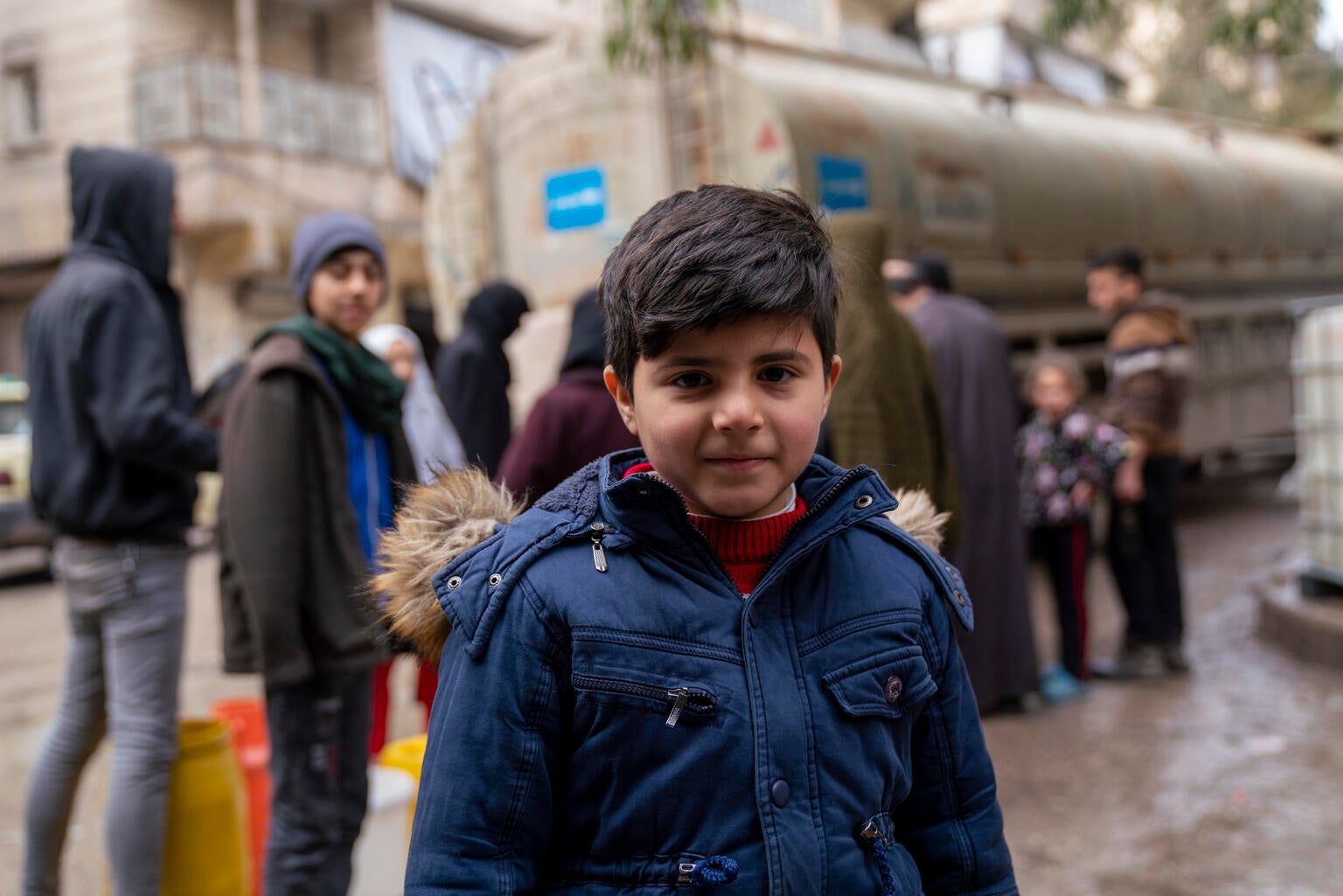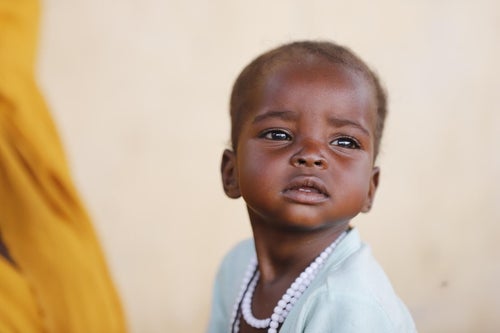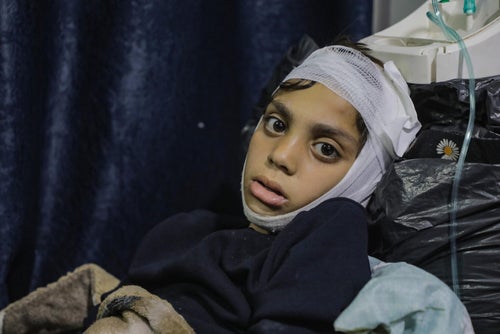It has been 365 days since a series of devastating earthquakes impacted the lives of millions of children and their families in Syria and Türkiye. On 6 February 2023, millions were displaced as homes, livelihoods and essential services, including access to safe water, health care and education, were reduced to rubble.
We saw an outpouring of support during our earthquake appeal last year, and thanks to the generosity of people like you, children had hope in the face of devastation. Despite experiencing unimaginable trauma and loss, children in Syria and Türkiye have displayed extraordinary strength and courage as they continue to rebuild their lives.
A long road to recovery
In the immediate aftermath of the disaster, children and their families who had lost their homes or feared returning to unsafe buildings slept in the streets, malls, schools, mosques, and bus stations. They were exposed to severe weather conditions at a time of year when temperatures are dangerously cold.
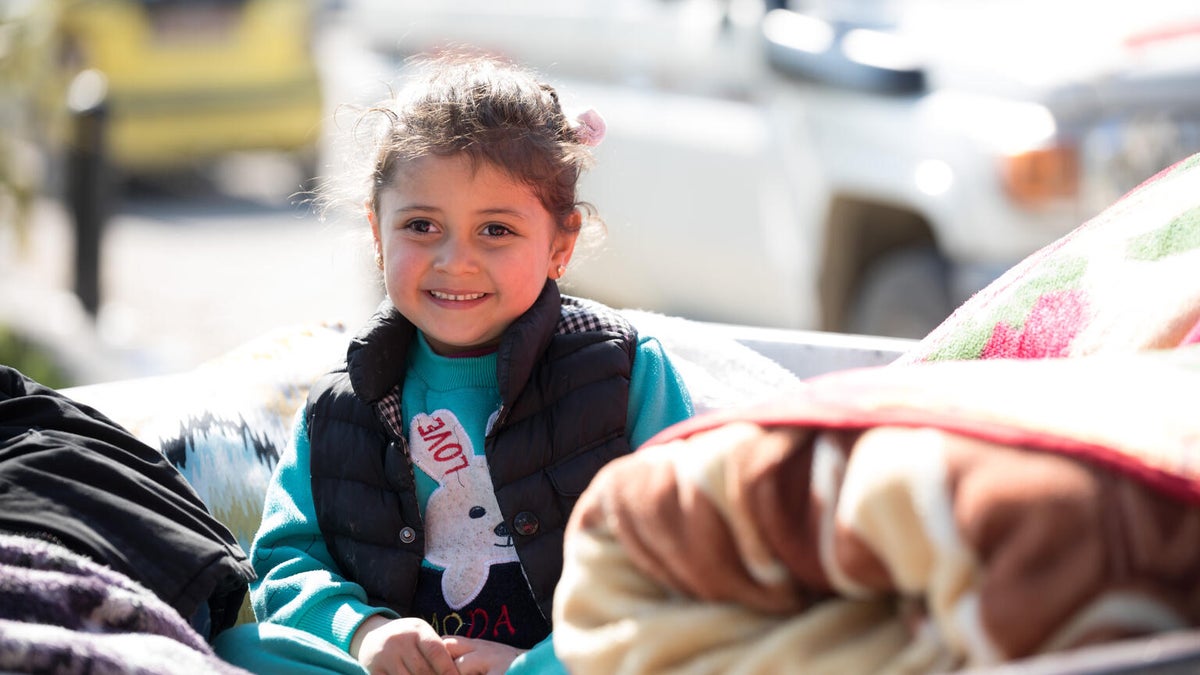
Critical infrastructure including water, healthcare, and sanitation services were destroyed in the disaster, and access to food and water became scarce or completely inaccessible, putting children at risk of disease and malnutrition. These threats were particularly severe and complex in Syria, where children and families were already struggling to cope after nearly 13 years of civil war, continued displacements, and an unprecedented economic crisis.
"Although the earthquakes may have faded from the headlines, it will take years to rebuild the damaged infrastructure and facilities, while the psychological impacts on children could continue beyond that."
When all seems lost, Hasan finds a way.
The horrors of that night are something 15-year-old Hasan from Syria will never forget. “I was under the rubble, and I did not know that my life changed forever,” he said. “I did not see anything, but I heard voices and called for help through a small hole.”
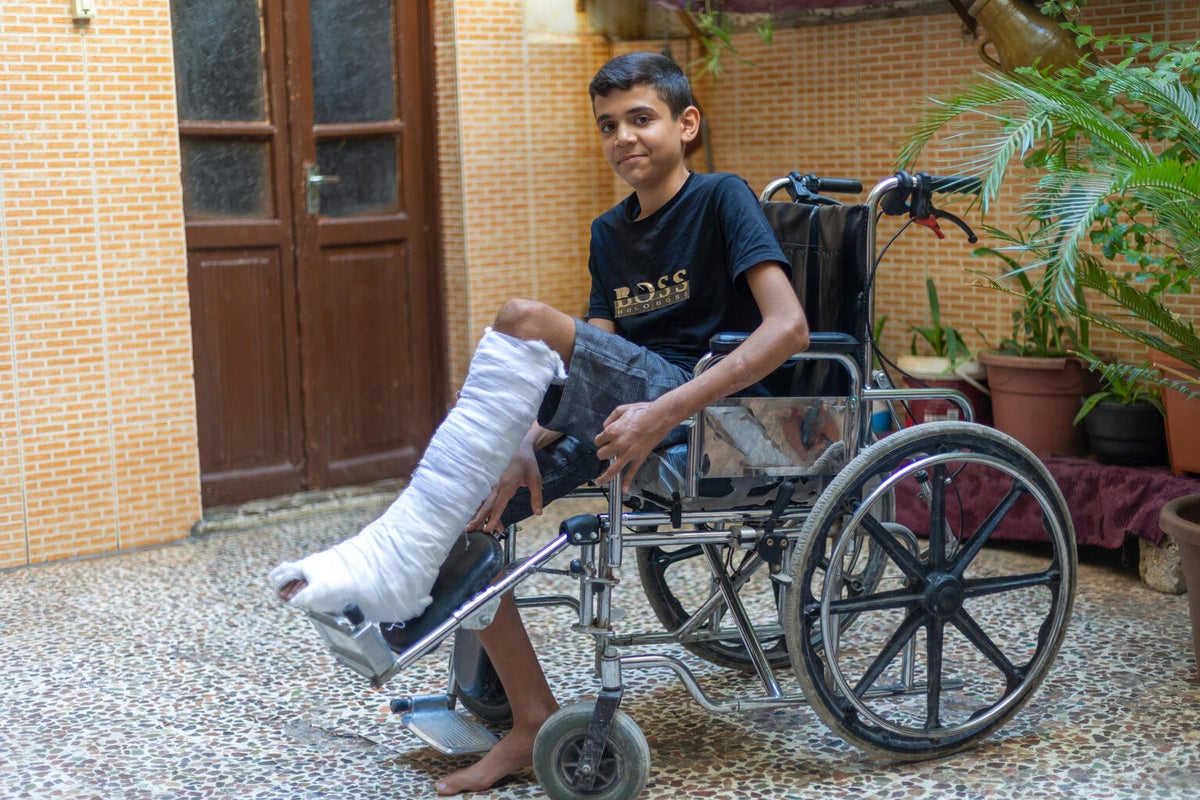
Hasan’s uncle, now his legal guardian, rescued him from under the rubble of the building where he lived with his family. Hasan’s mother and sisters were killed in the disaster, and he was left with serious leg and arm injuries.
Hasan’s education was disrupted by the earthquakes and his injuries, but he didn’t let that stop him from continuing to learn. After undergoing surgery with financial assistance from UNICEF’s Cash Transfer for Basic Needs program, Hasan studied from home and sat all his exams. He dreams of becoming a doctor one day so he can help others.
"My mother’s last wish was for me to pass Grade 9. I made her wish come true"
Hasan escaped with his life – but sadly, that wasn’t the case for the more than 50,000 people, including many children, who were killed in the earthquakes and aftershocks. Millions of people continue to live in temporary shelters after their homes and communities crumbled around them. One year on from the devastating earthquakes, more than 11 million children are still in need of ongoing humanitarian support.
A huge toll on children's mental wellbeing and education
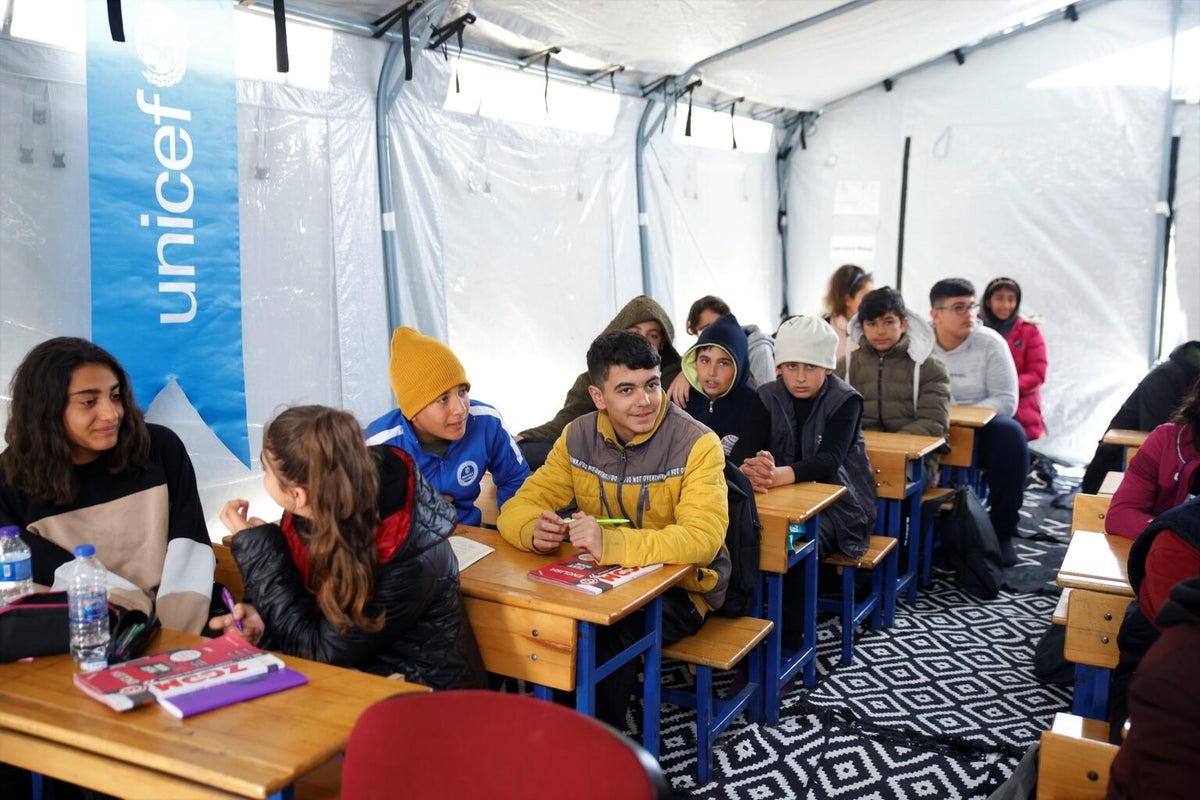
In the aftermath of the earthquakes, children in both countries have experienced unimaginable loss and grief. With so much death, destruction, and loss, they are still experiencing psychological problems including anxiety, depression, and fear.
Some, like 11-year-old Jameel from Syria, have been able to return to their homes and schools months after the earthquakes. But he says the constant fear that another earthquake will strike makes it difficult to concentrate on his studies.
"I used to be an A student, but my grades dropped. It’s because we were scared – we were not in a good mental space to study."
The earthquakes disrupted the education of more than 4 million children in Türkiye - nearly the entire child population of Australia. While UNICEF has been working hard to support the education of children in earthquake-affected areas in both Syria and Türkiye, more than 450,000 children in Türkiye remain without access to education.
Thanks to our incredible supporters, UNICEF and our partners continue to provide psychological and mental health care to children and caregivers in Syria and Türkiye who were displaced by the earthquakes.
How UNICEF is helping Syria and Türkiye’s children and their families
Thanks to the incredible support of our donors, UNICEF has strengthened our ongoing presence in Syria and Türkiye following the earthquakes, working alongside our partners to provide humanitarian assistance to children and families in need.
In 2023, UNICEF reached 5.6 million people affected by the earthquakes in Syria, including 3.2 million children. In Türkiye, UNICEF reached 4.7 million people, including 2.4 million children, with lifesaving services and support in 2023. As part of the earthquake response, UNICEF provided:
- 3.3 million people in Syria with a sufficient quantity and quality of water for drinking and domestic needs,
- more than 690,000 children and women in Syria with primary healthcare in UNICEF-supported facilities,
- more than 750,000 people in Türkiye with hygiene and WASH supplies,
- more than 1.5 million children and caregivers in Türkiye with mental health and psychosocial support,
- more than 195,000 vulnerable people in Syria with UNICEF-funded humanitarian cash transfers,
- and more than 550,000 children in Syria with formal or non-formal education, including early learning.
Together we have achieved so much, but it’s not the time to look away. 365 days later, Syria and Türkiye's children need us more than ever.
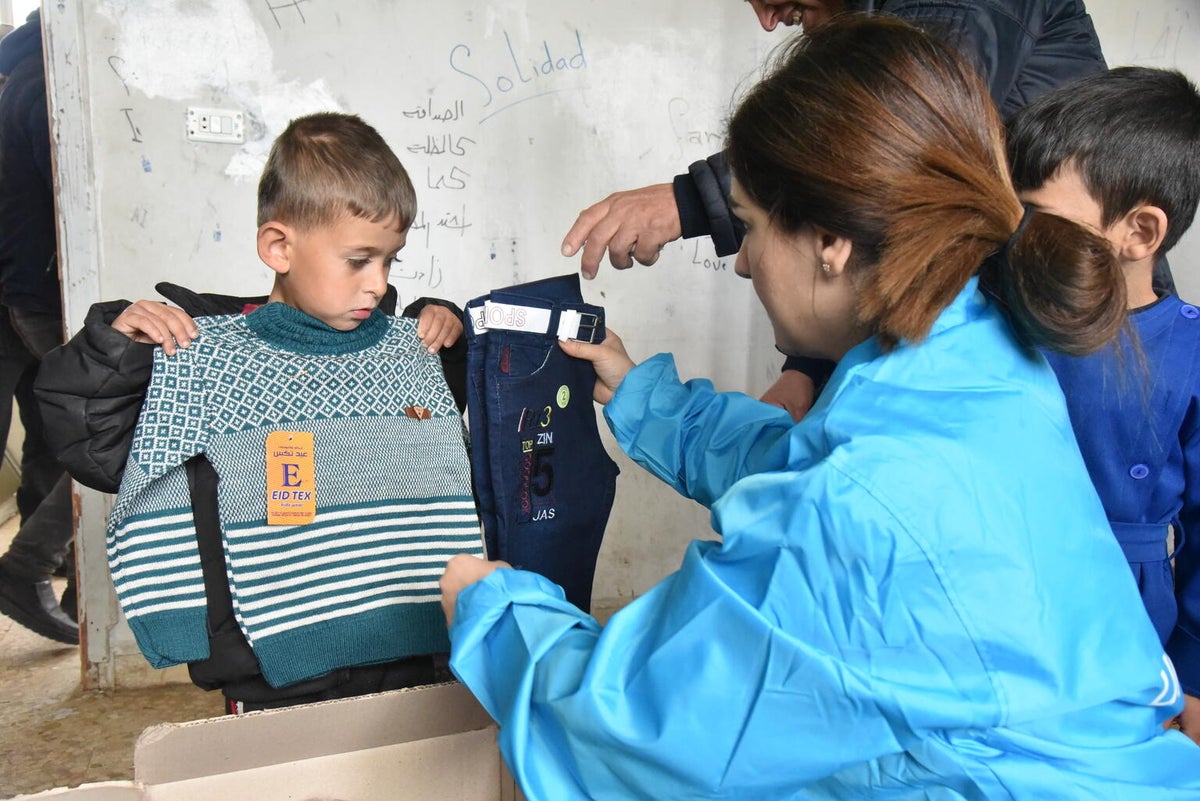
UNICEF is always there for children before, during, and after an emergency, but we can’t do it alone. While the news cycle has moved on from the horrific situation in Syria and Türkiye, it is still an everyday reality for children who lost their loved ones, their homes, their schools, and their communities.
It is only with your support that UNICEF can continue its lifesaving work to support children and families impacted by natural disasters and to help communities rebuild to become more resilient when future disasters strike, no matter where they are.
Syria & Türkiye Earthquake
UNICEF is on the ground, providing urgent assistance to families impacted by the devastating earthquake and 13 years of war.
Related articles
Stay up-to-date on UNICEF's work in Australia and around the world



